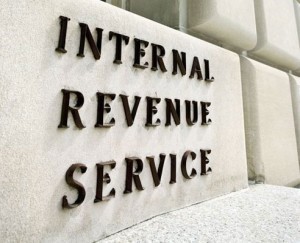[Updated May 2019] The IRS is on the hunt again for unreported foreign bank accounts. Already quite adept at finding taxpayers with hidden or undisclosed accounts overseas, the IRS recently obtained permission from a federal judge to issue a John Doe summons to several companies. This time, the IRS will be seeking records of shipments made through FedEx, UPS and DHL.
U.S. District Court Judge Vernon Broderick in Manhattan authorized the subpoenas.
Typically the IRS subpoenas (IRS calls them a “summons”) the records of a known, identified taxpayer. For instance, if the IRS was seeking information about me, it might issue a subpoena to area banks seeking information about accounts held by “Brian Mahany”.
In a John Doe summons action; the IRS seeks to gather information about a group of people whose identities are not yet known. In 2013, the IRS was seeking information about Americans holding accounts at FirstCaribbean International Bank. Because the bank had no branches in the United States, neither the courts nor IRS had jurisdiction over the bank and had no authority to compel the bank to turn over records. Instead, the IRS obtained a John Doe summons directed at Wells Fargo. To send and receive wire transfers from the United States, FCIB used Wells Fargo as it U.S. correspondent bank.
In the most recent action, the court authorized issuance of a John Doe summons to several courier companies. Why? Because they often are used to ship checks to foreign banks or receive statements.
Presently, the IRS is seeking information about taxpayers who worked with Sovereign Management & Legal Ltd, an offshore service provider. The IRS claims that Sovereign uses courier and money transfer services such as FedEx, UPS and Western Union to transfer funds. The government also says that HSBC acts as their correspondent.
Why is the IRS seeking information about Sovereign? Court documents say that Sovereign helped American taxpayers set up anonymous corporations in Panama.
In a prepared statement, U.S. Attorney Preet Bharara said, “This action demonstrates our office’s commitment to pursuing tax evaders who use offshore service providers to avoid their U.S. tax obligations. By issuing these John Doe summonses, we continue our joint efforts with the IRS to identify and hold accountable those who conceal their foreign assets in order to dodge their legal responsibility to pay taxes.”
Two years later in 2017 the IRS issued another John Doe summons related to Sovereign Management, this time to Michel Behr of Bozeman, Montana. That summons sought “records of U.S. taxpayers who, during the years 2005 to 2016, had been issued a “Sovereign Gold Card” debit card that could be used to access the funds in those accounts in such a manner as to evade their obligations under internal revenue laws.”
The IRS’ court petitions says, “In its petition seeking the issuance of the John Doe summons, the United States alleges that SML advertises various “packages” to allow taxpayers to hide their assets offshore. These packages include corporations owned by other entities (to include fake charitable foundations), all held in the name of nominee officers provided by SML. SML then opens bank accounts for these entities and provides debit cards in the name of the nominee to the taxpayer. By using such cards, taxpayers seek to access their offshore funds without revealing their identities.”
For taxpayers that used Sovereign Management to set up an offshore account, time is running out. Although there are several compliance options including the IRS Streamlined Reporting program to help taxpayers come into compliance, the IRS typically does not offer much in the way of penalty abatement once they have issued a John Doe summons.
If you have an unreported offshore account in Panama or an account held in the name of an anonymous Panamanian corporation, seek legal assistance immediately. Willful failure to report an offshore account is a felony. Civil penalties are also onerous; up to the greater of $100,000 or 50% of the highest account balance and can be imposed for multiple years.
Whistleblower Rewards for Information about Unreported Offshore Accounts
Why do we write about unreported foreign accounts? Because we try to help people follow the law. Our tax practice is limited to cases with possible criminal exposure and whistleblower cases. (If you are just trying to find someone to help you come into compliance and have no criminal exposure, write to us. We can provide you a great referral.)
Despite over a decade of heightened enforcement activity, thousands of Americans still evade taxes through use of offshore accounts. If you have knowledge about those activities, we can help you collect a reward. The largest awards are paid for information about banks, offshore service companies and corporations evading taxes. The awards are between 10% and 30% of what the government collects including taxes, interest and penalties.
If you have information about an individual evading taxes, he or she should have an annual gross income of at least $200,000 and the taxes, interest and penalties should be at least $2 million. [The IRS has a small claims procedure, we cannot assist you with those cases.]
No one likes paying taxes but most of us hate tax cheats even more!
To learn more, visit our John Doe summons whistleblower post or IRS Whistleblower Program page. Ready to see if you qualify? Contact us online, by email or by telephone at . All inquiries protected by the attorney – client privilege. Our services are provided worldwide. You do not need to be a U.S. citizen to collect a whistleblower reward.


